In the middle of Turkey’s Cappadocia region, where special rock shapes are everywhere, there’s something really amazing hiding. This has made people who love adventure and history very interested. An underground town.
Beneath the beautiful views of Love Valley and the famous tall rock formations, there is a mysterious place hidden underground.
Over 2,000 years ago, a remarkable underground city named Derinkuyu was created. It goes more than 85 meters below the ground and is like a big maze.
In 1963, a curious person living nearby saw his chickens disappearing into a small crack. This led to a surprising discovery – hidden tunnels and rooms underground.
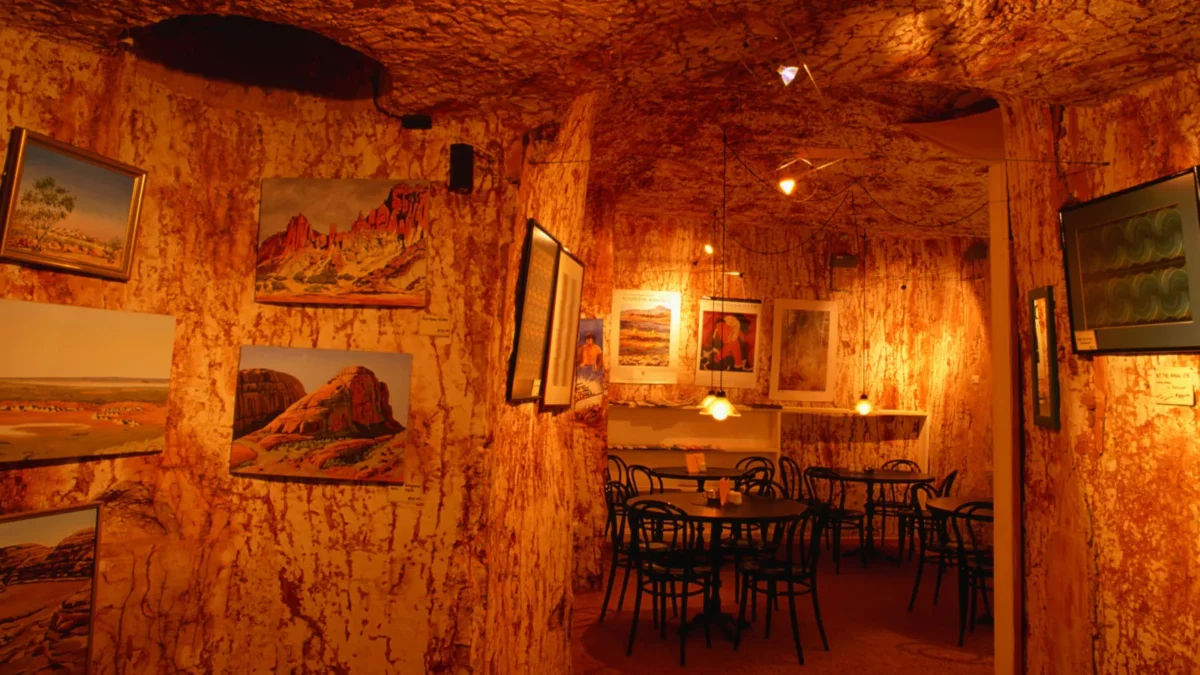
There are 18 levels connected by tunnels. Inside, there are secret rooms, homes, places for learning, spaces for keeping animals like cows, and even a small chapel.
This very old underground city, the biggest one ever found, shows how clever and creative the people who lived there were.
People aren’t sure exactly who should get credit for making it, but some think the Hittites started it and the Phrygians, a powerful ancient group, added most of it.
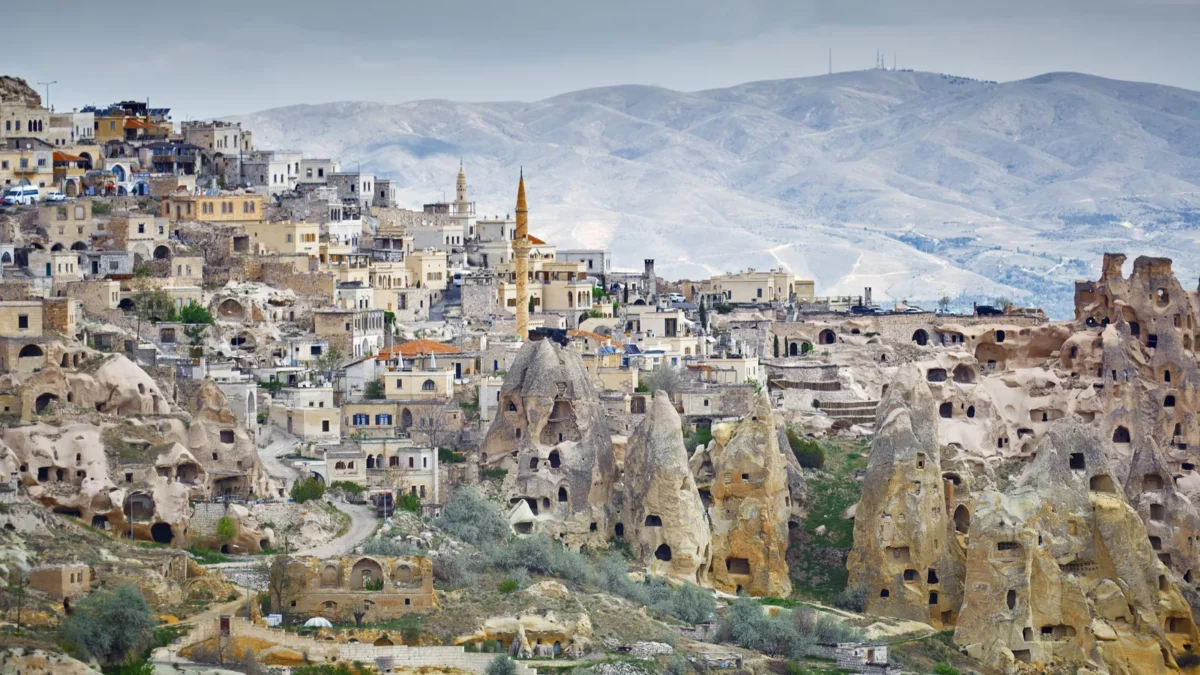
Andrea De Giorgi, a professor at Florida State University who studies ancient civilizations, explained that the special type of rock in Cappadocia made it easy to dig tunnels and rooms underground.
People could use basic tools like shovels and pickaxes to create these hidden spaces.
“The geomorphology of the region is conducive to the digging of underground spaces,” he explained, noting the region’s tuff rock, which was naturally shaped into the surreal formations that dot the surface.
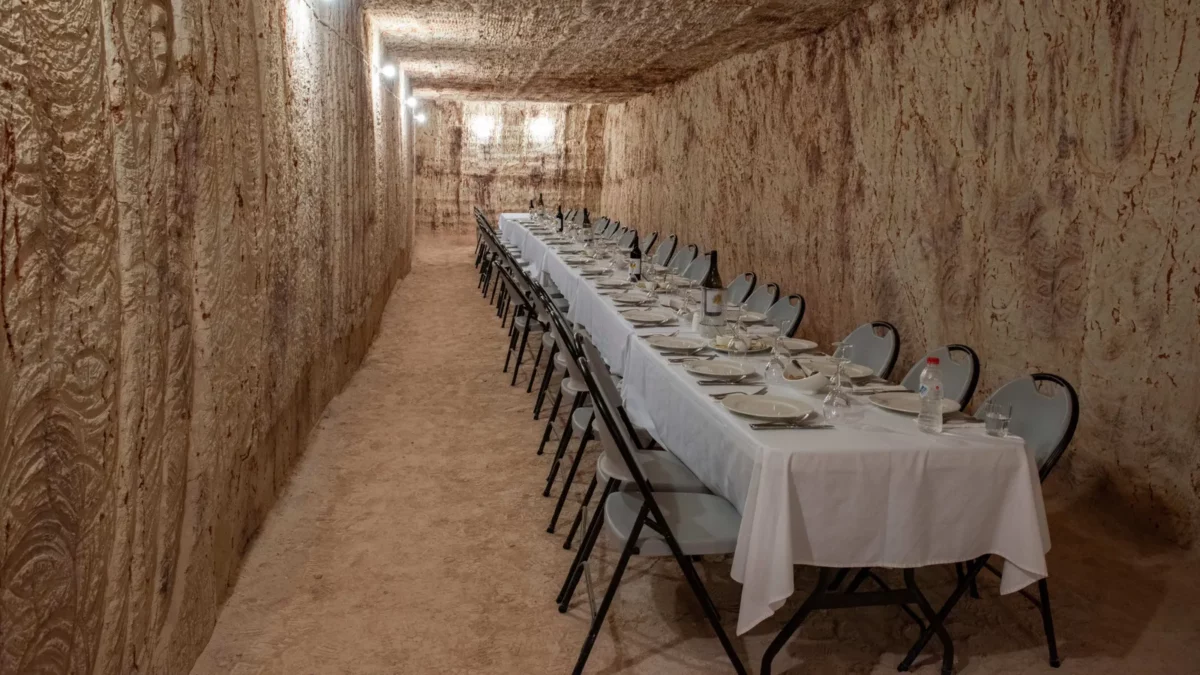
The reason for building Derinkuyu had two main parts: storing things and staying safe.
Over time, Cappadocia saw different groups take control, which brought the risk of enemies attacking. Derinkuyu became a safe place for around 20,000 people to hide underground for many months.
The city’s narrow hallways made it hard for invaders to move around, and big round rocks were used to block doors, keeping the people inside safe.
Ventilation shafts and a deep well supplied fresh air and water to the entire city, a feat made possible through the construction of more than 50 ventilation shafts and a well that exceeded 55 meters in depth. These vital resources sustained residents through the underground months.
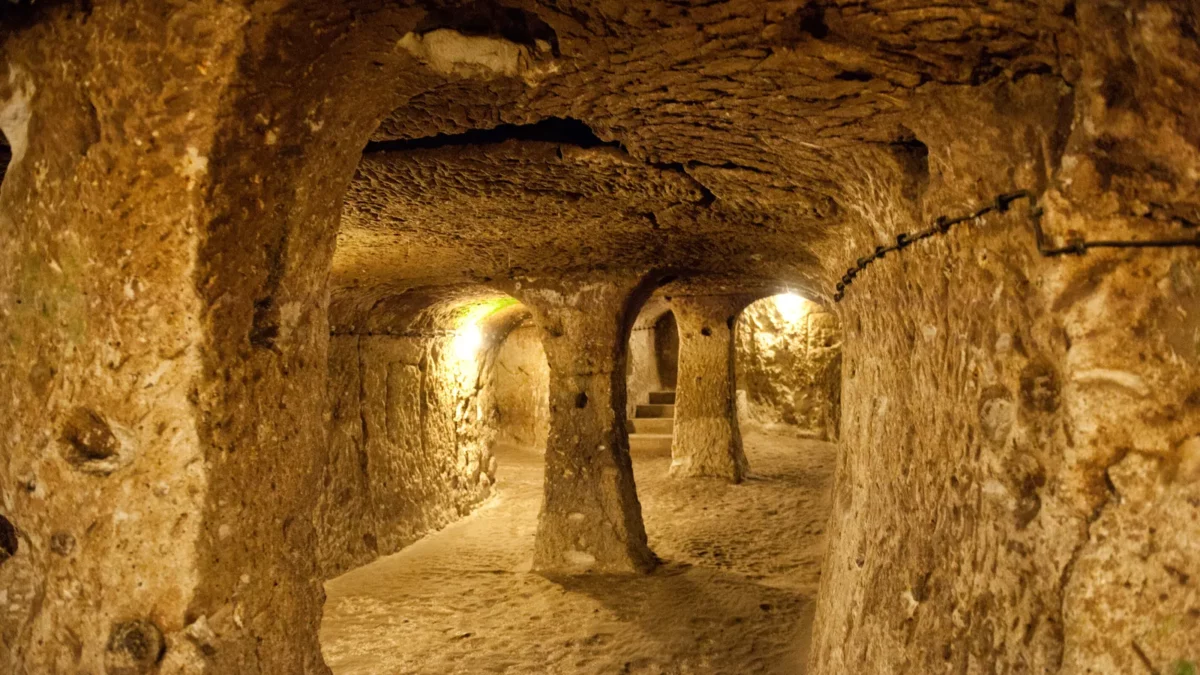
The city’s extraordinary history came full circle in 1923 when the Cappadocian Greeks evacuated, leaving the underground city silent once again.
Today, visitors can explore Derinkuyu’s awe-inspiring depths, traversing its dimly lit passages and experiencing the ingenious architecture that enabled life beneath the surface.
As more of Cappadocia’s subterranean secrets are revealed, archaeologists and historians are uncovering evidence of even more underground cities, some linked to Derinkuyu through extensive tunnels that stretch for kilometers.
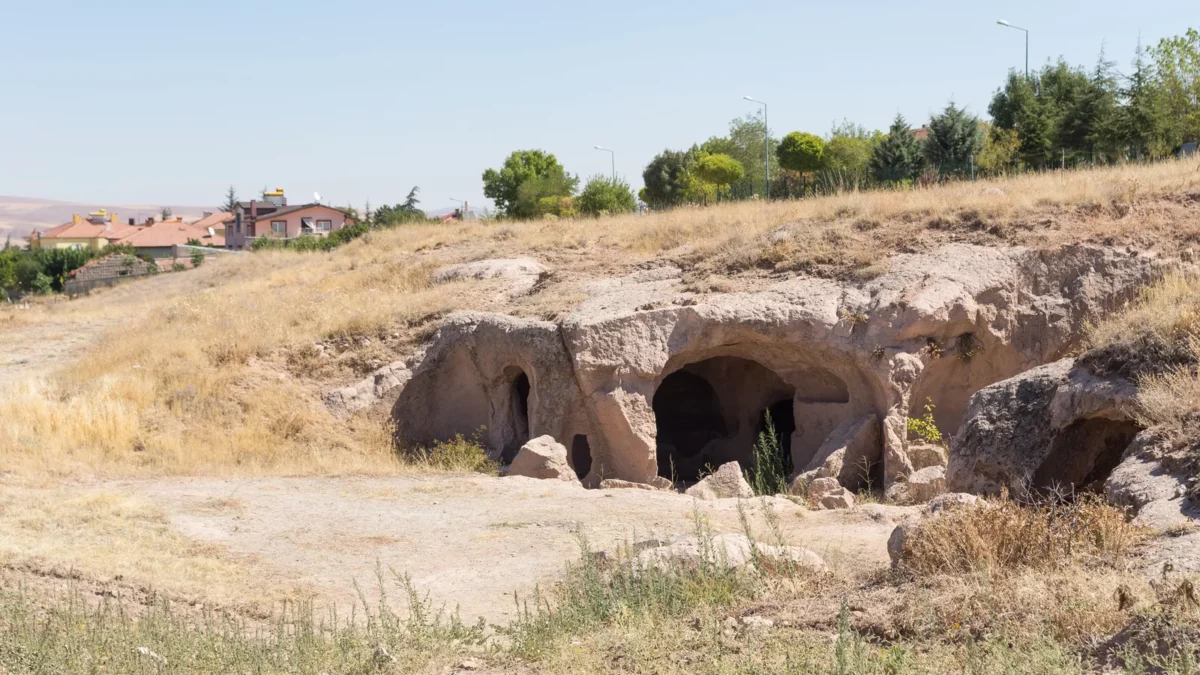
The legacy of these hidden havens continues to captivate the imagination, offering a glimpse into the resourcefulness of ancient civilizations and their quest for safety and survival.
Read also: Flash floods ravage Australia sweeping away hundreds of homes
“Derinkuyu is a testament to human ingenuity and adaptation,” says Suleman, a knowledgeable guide who leads visitors through the city’s corridors. “It’s a remarkable testament to the lengths people will go to ensure their safety and survival, even beneath the Earth’s surface.“
The allure of Cappadocia’s underground world endures, reminding us that beneath the tranquil beauty of the Anatolian Plains, a rich and hidden history waits to be explored.
Subscribe to Switch TV


![More than 85m beneath the famous fairy chimneys of Cappadocia lies a massive subterranean city that was in near-constant use for thousands of years. [Photo/Courtesy] Underground](https://news.switchtv.ke/wp-content/uploads/2023/08/p0crx66n-1200x675.webp)













